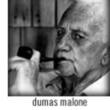The inner Jefferson: portrait of a grieving optimist
Description
Thomas Jefferson's personal life has always been a puzzle to biographers. Even his contemporaries found him difficult to know. In Jefferson's correspondence, however, Andrew Burstein has found a key to the inner man. This penetrating and thoughtful portait confronts widespread misunderstandings about Jefferson's romantic life and provides insight into the contradictions that still surround our third president.
More Details
Also in this Series
Published Reviews
Choice Review
Much is known about this "most controversial of public men," but Jefferson was adept at concealing his private self. Burstein's book elucidates the enigma of Jefferson's personality, character, and private life more fully and successfully than any previous study. Placing Jefferson within an 18th-century context of cultural conventions, Burstein, an independent scholar, avoids the anachronisms that characterize Fawn M. Brodie's Thomas Jefferson: An Intimate Portrait (1974). He pursues Jefferson's affective behavior and personal life through a close analysis of the personal idiomatic phrases contained in Jefferson's voluminous correspondence to his ever-widening circles of intimates, family, friends, colleagues, associates, and notables. Not surprisingly, the result is both complex and paradoxical. While sympathetic to Jefferson, Burstein sees a man who was consciously self-fashioning, a combination of sentiment and rationality, restrained if not inhibited, and who amid partisan political conflict held himself blameless. He sees Jefferson's sensibilities much influenced and shaped by the minister and novelist Laurence Sterne, as his imagination was by the fraudulent epic poetry of the so-called Gaelic bard Ossian. The essential organization of this study is topical, within which it moves back and forth chronologically. Illustrations and endnotes. All levels. M. L. Dolan; Northern Michigan University
Publisher's Weekly Review
Burstein, an independent scholar who has taught and written extensively on early American history, has fashioned a book that should attract a wide readership. Making particular use of Jefferson's letters, Burstein attempts to reveal the inner man who few contemporaries felt they knew well. The author has a sure grasp of the material and a prudent awareness that Jefferson was a person of his timesnot of ours. Jefferson possessed inconsistencies and contradictions, though Burstein goes a little overboard in finding opposites in everything he did. According to Burstein, Jefferson was rational and emotional, forthright and shy, compassionate and vengeful, ordinary and extraordinary. Nonetheless, one finishes this book with a renewed awareness of the profound sensibilities and talents of this complicated individual and a deeper understanding of the importance to him of his wide circle of close friends. Recommended for all libraries.T.J. Schaeper, St. Bonaventure Univ., N.Y. (c) Copyright PWxyz, LLC. All rights reserved
Publishers Weekly Reviews
Burstein, an independent scholar who has taught and written extensively on early American history, has fashioned a book that should attract a wide readership. Making particular use of Jefferson's letters, Burstein attempts to reveal the inner man who few contemporaries felt they knew well. The author has a sure grasp of the material and a prudent awareness that Jefferson was a person of his times?not of ours. Jefferson possessed inconsistencies and contradictions, though Burstein goes a little overboard in finding opposites in everything he did. According to Burstein, Jefferson was rational and emotional, forthright and shy, compassionate and vengeful, ordinary and extraordinary. Nonetheless, one finishes this book with a renewed awareness of the profound sensibilities and talents of this complicated individual and a deeper understanding of the importance to him of his wide circle of close friends. Recommended for all libraries.?T.J. Schaeper, St. Bonaventure Univ., N.Y. Copyright 1995 Cahners Business Information.


































